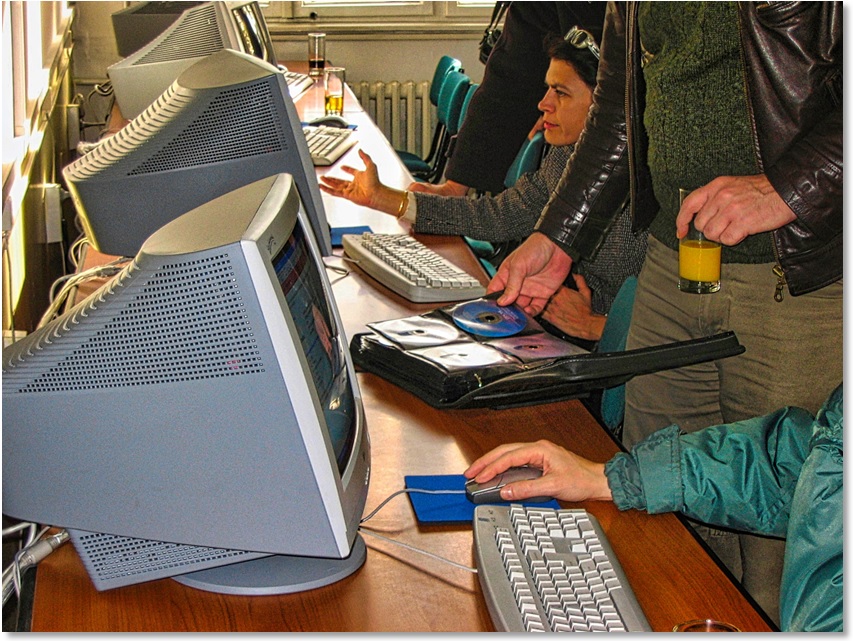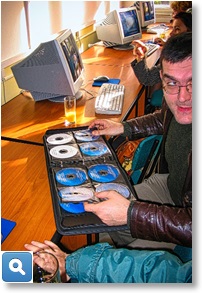Physicians in Serbia examining the new computers and medical information CDs.
In celebration of our 25th anniversary, WiRED is pleased to bring you stories from our archives. These articles provide a glimpse of WiRED’s early work as they depict the places and the projects we have focused on over the years.
Preface to this Archive story about WiRED’s Projects in Kosovo and Serbia
Summary of WiRED’s beginning in the former Yugoslavia
 WiRED started its education mission 25 years ago in Croatia, one of six countries in the former Yugoslavia. Soon after we set up computer facilities in a school in Vukovar, Croatia, the U.S. Department of State asked if we would expand the project into several other countries by supplying computers and training local high school teachers how to use computers in education. Those other countries included Bosnia, Montenegro and Albania (not formally in the former Yugoslavia).
WiRED started its education mission 25 years ago in Croatia, one of six countries in the former Yugoslavia. Soon after we set up computer facilities in a school in Vukovar, Croatia, the U.S. Department of State asked if we would expand the project into several other countries by supplying computers and training local high school teachers how to use computers in education. Those other countries included Bosnia, Montenegro and Albania (not formally in the former Yugoslavia).
Then, in 1999, we began working with other NGOs on a State Department project in Kosovo, called the Kosovo Internet Access Initiative (KIAI). The KIAI was designed to help citizens throughout Kosovo reconnect with family members driven out of the province by the Serbian army. The KIAI program proved to be successful and allowed many Kosovars to locate relatives who had scattered throughout the world. The project also allowed medical professionals in Kosovo to connect with colleagues and medical institutions overseas, providing updates on medical diagnoses and treatments.
Then, in 1999, we began working with other NGOs on a State Department project in Kosovo, called the Kosovo Internet Access Initiative (KIAI).
The persistence and dedication of the physicians were inspiring, and seeing them lined up each morning to access the Internet-linked computers, we resolved that going forward we would focus entirely on IT-based medical and health education. That mission continues today for all our programs, including community health worker training and our expanding continuing medical education programs.
Simultaneous projects in Kosovo and Serbia
After the KIAI project was completed, WiRED developed projects in Africa and Central America in the early 2000s. But, our work in the Balkans regions wasn’t finished. We soon returned to Kosovo and started several projects in Serbia. The story below is about one of those efforts in 2004.
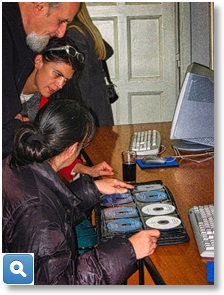
The old saying that you can’t get from here to there wasn’t so far off when it came to Kosovo and Serbia in those days. Although the two countries* shared a 236-mile border, you couldn’t easily cross from one side to the other. Even if you could get permission, the paperwork was onerous for ground transportation, and there were no commercial flights between Pristina and Belgrade, the capital cities, not for lack of passengers, but for lack of political comity.
Working simultaneously in both countries required some tricky travel, always involving a plane change in a third country. Matching flight schedules was a challenge, and so flying between these two countries–sharing a common border–usually required two days of travel time.
The following story describes WiRED’s medical education projects, conducted in two countries that just several years earlier were engaged in combat. The enmity between them in 2004 had not been resolved, but at least the shooting stopped and the combat was conducted with words and by diplomats.
The old saying that you can’t get from here to there wasn’t so far off when it came to Kosovo and Serbia in those days.
* Kosovo had not declared its independence from Serbia until 2008, and before that it was referred to as a province.
From Nov 2004
WiRED opens two new Medical Information Centers in the Former Yugoslavia
WiRED expanded its Medical Information Center project in the former Yugoslavia with the launch of Centers in the Medical Faculty at the University of Prishtina, Kosovo and at the Medical Faculty at the University of Belgrade, Serbia. Both facilities now provide doctors and medical students with information from a medical CD collection and medical Websites. The Centers were funded by the Medtronic Foundation which has generously supported WiRED’s work throughout the Balkans and in Iraq.
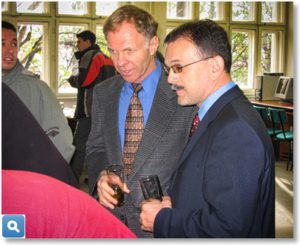
WiRED began its work in Kosovo in 1999, just after the war, while collaborating with the Global Technology Corps at the U.S. Department of State. In that project, WiRED provided training and research for the Kosovo Internet Access Initiative (KIAI) which installed public access Internet Centers in eight cities and towns throughout the province. That project, now completed, enabled people in Kosovo to obtain information and to communicate with family members who left for other countries or for refugee camps.
Also through the KIAI, WiRED developed its Video Visit program which enables family members to hold video conferences with ailing children who are sent abroad for medical treatment. This project, begun in Prishtina, and used elsewhere in the region, is now expanding to Iraq where it will operate in each of the 36 Medical Information Centers currently in operation or under construction.
The new Medical Information Center in Prishtina is the first of several Centers planned for Kosovo and the first WiRED activity since the KIAI work. The Center in Belgrade is WiRED’s first installation in Serbia. It will be followed within a month by two additional Centers: a Medical Information Center in the Medical Faculty at the University of Novi Sad and a public-access Community Health Information Center at the Novi Sad Humanitarian Center (NSHC).
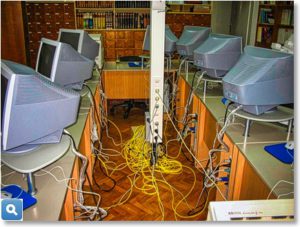
The focus of the NSHC facility will be HIV/AIDS prevention. AIDS is a growing problem in Central and Eastern Europe and the community outreach efforts associated with this project will test the viability of using information technology to disseminate the AIDS prevention message. WiRED’s program on HIV/AIDS prevention, developed in Kenya, is expected to be used in other regions where the epidemic is escalating.
Like the work in Kosovo and Serbia, much of WiRED’s work in Central Europe is funded by the Medtronic Foundation. Medtronic is the world’s leading medical technology company, providing lifelong solutions for people with chronic disease.

